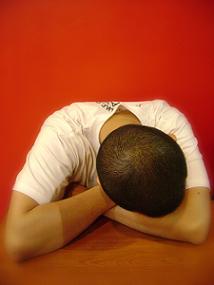Study leader, Associate Professor Shantha Rajaratnam said patients with TBI showed increased sleep disturbance and reported poorer sleep quality, and higher anxiety and depressive symptoms than healthy volunteers.
"These results suggest that TBI may disrupt the brain structures that regulate sleep, including the production of melatonin. Patients with TBI showed decreased sleep efficiency and increased periods of being awake after trying to sleep," Associate Professor Rajaratnam said.
Study co-author, Professor Jennie Ponsford, said injury-related damage to sleep-wake regulating centres and associated pathways or neurotransmitter systems was the most likely cause of such disturbances.
The study also revealed that TBI patients spent more time in a stage of sleep called slow wave sleep or deep sleep (after controlling for anxiety and depression). They were also awake more after initially falling asleep, averaging 62 minutes per night awake compared to 27 minutes for the healthy group.
The study also revealed that patients with TBI had significantly lower levels of evening melatonin production. Melatonin is a hormone produced by the pineal gland in the brain, and is known to be involved in the regulation of sleep.
The results suggest that there are at least two factors contributing to sleep disturbances in patients with TBI. Elevated depression is associated with reduced sleep quality, and increased slow wave sleep is attributed to the effects of mechanical brain damage.
"What we're seeing here is a complex, bidirectional relationship between sleep and mood disturbances. Disturbed sleep increases the risk of depression, and likewise depression is known to cause sleep disruption - even in patients who haven't experienced TBI. However, when the influence of anxiety and depression symptoms were statistically controlled, sleep quality still remained lower in patients with TBI," Associate Professor Rajaratnam said.
"Future studies should examine whether taking supplemental melatonin can improve sleep in people with brain injuries."
The study was supported by the National Health and Medical Research Council and the findings published in the May 25, 2010, print issue of Neurology, the medical journal of the American Academy of Neurology.
The study found that TBI patients had trouble falling and staying asleep, due to elevated depression and mechanical brain damage.


